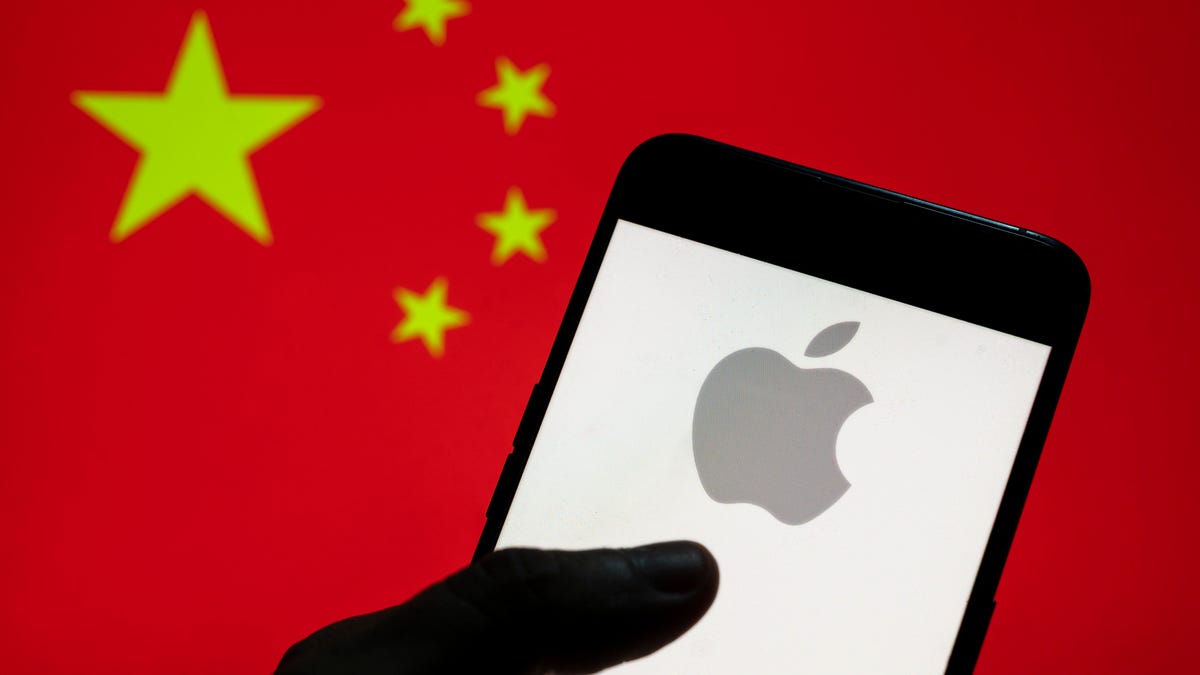Apple reportedly makes data less secure for users in China
The New York Times says that despite Apple's general stance on privacy and security, it's deferred to Chinese government demands.

The Chinese government's increasing authoritarian demands have reportedly changed how Apple does business.
Apple CEO Tim Cook frequently pitches his company as a bastion of security and privacy. He says privacy should be a human right, and he points to the company's frequent inclusion of encryption and other protective technologies as proof of that. But The New York Times, in a story published Monday, detailed how Apple has increasingly deferred to demands by the Chinese government, ultimately weakening the privacy and speech of users in that country.
Central to the Times' story is a new datacenter the company's building in Guiyang, China, that's slated to be completed next month. The Times said Apple's servers there will store Chinese users' information, and even though it'll be protected by encryption, the keys to unlock those files will be stored in China as well. That leaves them potentially available to the Chinese government, the Times said. Chinese government workers physically control and operate the datacenter as well, according to the report.
"In its data centers, Apple's compromises have made it nearly impossible for the company to stop the Chinese government from gaining access to the emails, photos, documents, contacts and locations of millions of Chinese residents, according to the security experts and Apple engineers," the Times said.
Apple told the Times it follows laws in China and did "everything it could" to keep users' data safe. "We have never compromised the security of our users or their data in China or anywhere we operate," the company told the Times and reiterated when asked for further comment.
An Apple spokesman also told the Times that the company still controls the encryption keys for customer data, and that it uses more advanced encryption technology there than in other countries.
Here is Apple's full statement on our story.
— Jack Nicas (@jacknicas) May 17, 2021
After Apple sent this, I worked with the company to understand what it believed to be wrong in our story and then made changes to correct any outdated information and to include their view when needed. pic.twitter.com/shwaJkWyAi
The revelations in the Times story underscores the extent to which tech companies including Google, Wikipedia and Microsoft are running up against local laws and getting entangled in politics at the same time their products increasingly become essential parts of our lives. Governments around the world are pushing back particularly on privacy technologies, saying they sometimes pose national security risks. The Chinese government, in particular, appears to have forced concessions out of Apple.
China is one of Apple's most important regions, home to nearly 15% of its revenue last year and also where most of its products are assembled. The Times said the Chinese government has been able to leverage that importance to strike deals with Apple to hand some control of user data to an outside firm owned by the Chinese government.
But Apple hasn't just bent to Chinese customer demands. Apple's also censored its App Store, the Times wrote, something the company said it does to comply with local laws. Subjects Apple censors include mention of the 1989 Tiananmen Square massacre, the spiritual movement Falun Gong, the Dalai Lama, and mention of independence for Tibet or Taiwan.
"Since 2017, roughly 55,000 active apps have disappeared from Apple's App Store in China, with most remaining available in other countries," the Times wrote, citing its own analysis. "More than 35,000 of those apps were games, which in China must get approval from regulators. The remaining 20,000 cut across a wide range of categories, including foreign news outlets, gay dating services and encrypted messaging apps. Apple also blocked tools for organizing pro-democracy protests and skirting internet restrictions, as well as apps about the Dalai Lama."
Apple reportedly disputed those figures, saying some developers chose to pull their apps on their own.

